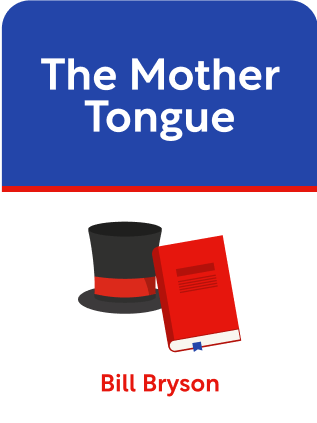

This article is an excerpt from the Shortform book guide to "The Mother Tongue" by Bill Bryson. Shortform has the world's best summaries and analyses of books you should be reading.
Like this article? Sign up for a free trial here .
What are the differences between British and American English? How did the same language evolve into two different versions?
The British and American English differ in a few fundamental ways, but this has not always been the case. The great divergence between the two was a slow and long historical process, which started when the first English-speaking settlers arrived in the Americas.
Read about the divergence between British and American English.
Divergence Between British and American English
British and American English once shared more in common with each other than they do today. Soldiers fighting on opposite sides of the American Revolutionary War probably had similar pronunciations of words, although both sides likely sounded more like modern-day Americans than modern-day British (most 18th-century Englishmen still pronounced their r’s and used the flat a in words like bath and path).
The divergence between British and American English started when the first wave of English-speaking settlers arrived on the American continent. They found themselves in a vastly different environment from the one they’d known, filled with plants and animals that didn’t exist in Europe. They needed to invent new words to describe the things they saw.
They often borrowed from the languages of the American Indians, creating anglicized words like hickory, squash, and raccoon. We also see this in place-names like Massachusetts, Connecticut, and Manhattan. They also drew upon words from earlier Spanish settlers, which had often themselves been adapted from the Indian originals by the Spanish. The English-Spanish hybrids include bronco, avocado, and canyon. Lastly, they sourced from the French, which we see in place-names like Illinois, Detroit, and New Orleans, as well as nouns like chowder and prairie.
Over time, English-speaking Americans developed their own unique vocabulary and pronunciations, many of which became widely adopted in England, as well as in whole other languages. The ubiquitous ok is maybe the best example, having worked its way into languages across every inhabited continent. Its history and origins are unclear, although linguists believe it may have arisen out the ironic wordplay of early 19th century American jokesters. Around this time, some well-educated young people in American cities led a fad of creating acronyms for deliberately misspelled phrases—thus, “ok” came from “oll korrect,” meaning “all correct.”
American Influence and Resistance
American English has exerted its own influence on British English, with American words like teenager and commuter becoming commonplace in the British vocabulary. Indeed, most of the new words introduced into the language since independence have come from the American side of the Atlantic. British language purists have sometimes reacted to this influence with hostility and suspicion, treating it as a hostile foreign invasion and bastardization of their native tongue. Samuel Johnson—whose work as one of the great early lexicographers of English we explored in Chapter 2—reserved particular contempt for Americans and the American dialect of English, believing it to be nothing more than a crude and inferior facsimile of the superior original.
Figures like Johnson even fumed against words they wrongly believed to be Americanisms, like jeopardy and smolder, not knowing that these words had well-established roots in the British Isles. Many Americans of the time bought into these British notions of American linguistic inferiority, with newspaper editors in New York sometimes refusing to print words that they believed lacked proper credentials on the other side of the Atlantic.
But despite the prejudice, America has continued to work its will on the mother tongue, especially as the reach of US media and Hollywood films has extended around the world. American idioms like don’t have are replacing haven’t got in Britain, while truck is gradually edging out the more uniquely British lorry. We can also see this in British spelling, as the u in humour and colour is slowly becoming extinct in the UK.
Despite the convergence of the two dialects and the steady Americanization of British English, substantial differences remain between the two main branches of the language. In everyday speech, there are still some 40,000 words that are used differently in the US and the UK.

———End of Preview———
Like what you just read? Read the rest of the world's best book summary and analysis of Bill Bryson's "The Mother Tongue" at Shortform .
Here's what you'll find in our full The Mother Tongue summary :
- How English became a global language
- How the invention of the printing press led to standardization of written English
- Why English dictionaries are the most comprehensive found in any language






